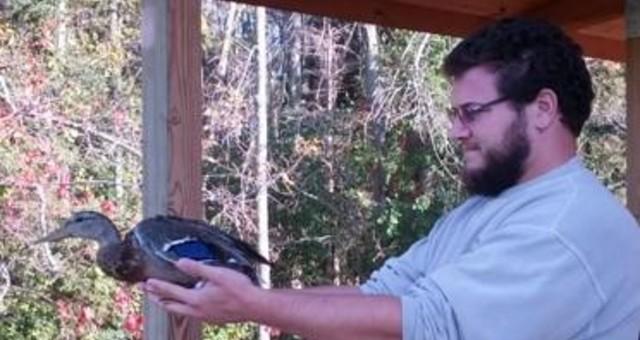February 2014 - August 2015
Use of iButton temperature and humidity sensors and remote cameras to assess colonization of artificial nest boxes by wood ducks (Aix sponsa) at SUNY-Oswego Rice Creek Field Station
My research focuses on how temperature influences nest site selection by wood ducks around Rice Creek. Additionally, I hope to use temperature sensors in tandem with remote cameras in order to detect when, and for how long, female ducks incubate their broods. The nest boxes were placed in February 2014, and November 2014 marked the end of the pilot year. I will be placing more wood duck boxes in the area in February 2015 to conduct another season of research.
I have learned that conducting research is a lot of hard work and takes a lot of commitment. This study in particular was surprisingly physically demanding, as some of the nest boxes are accessible only by walking through endless patches of multiflora rose and waist-high mud, all the while carrying power tools and a ladder. However, it was a very rewarding feeling turning an idea and a conversation into a real research project, and even more rewarding to get results and get a firsthand experience of science in progress.
To me, the most memorable moment was finding out that ducks were starting to use the nest boxes we had provided them. This study marks the first time wood duck boxes at Rice Creek were placed in a variety of settings, so we were unsure if they would even be used during the pilot year. However, about half of the boxes were used, and most hatched successfully.
I was born outside of Chicago, although I grew up in Cooperstown, NY. I have always been interested in zoology, particularly birds and reptiles. During my sophomore year, I met with professors to discuss research opportunities, and together we formulated the hypothesis and methods we would use for this project.
After graduating, I plan on traveling across the country and working with different conservation and environmental organizations, as well as doing research. I also plan on attending graduate school for zoology, ecology, or paleontology. I can picture myself working in a natural history museum or teaching at a university after grad school.



